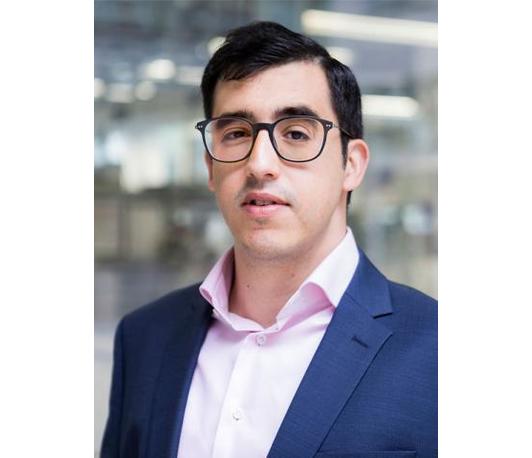MPI Kolloquiumsreihe: Prof. César Rodriguez-Emmenegger, PhD, IBEC Barcelona: Harnessing nature’s blueprints to design interactive biointerfaces and synthetic cells
MPI Kolloquiumsreihe: Prof. César Rodriguez-Emmenegger, PhD, IBEC Barlecona
- Datum: 01.02.2024
- Uhrzeit: 14:00 - 16:00
- Vortragende(r): Prof. César Rodriguez-Emmenegger, PhD
- Institute for Bioengineering of Catalonia, Barcelona, Spain
- Ort: Max-Planck-Institut Magdeburg
- Raum: Großer Seminarraum "Prigogine"
- Gastgeber: MPI Forschungskoordination
- Kontakt: oelbermann@mpi-magdeburg.mpg.de

Das Max-Planck-Institut Magdeburg lädt Sie herzlich zu seiner öffentlichen Kolloquiumsreihe ein.
Hochrangige WissenschaftlerInnen verschiedener Fachgebiete aus renommierten Forschungseinrichtungen aus Deutschland und weltweit präsentieren ihre Forschungsarbeit.
Einwahl per Zoom: https://eu02web.zoom-x.de/j/7302508065
Abstract
Nature's ability to engineer functionality in materials arises from the hierarchical self-assembly of seemingly simple (macro)molecular building blocks. Deciphering these intricate blueprints forms a robust foundation for the bio-inspired synthesis of materials that can seamlessly interact with living systems and execute novel functions. My lecture showcases a selection of research endeavors conducted in our laboratory, all centered around the overarching objective of crafting bio-inspired interactive materials for biomedical applications. First, I will introduce adaptive hemocompatible nanocoatings with the remarkable that mimic simple functions of natural endothelium and are capable of modulating hemostasis as well as detecting and digesting blood clots. This technology is translated to oxygenator membranes. Second, I will delve into our innovations concerning 'Kill&Repel', an adaptive antimicrobial nanocoatings tailored for medical devices. Lastly, I will concentrate on the development of synthetic cells, specifically engineered vesicles designed to mimic fundamental biological properties and perform specific tasks. These tasks encompass hosting bacterial divisomes and engineering synthetic macrophage-mimetic microrobots proficient in the phagocytosis of bacteria and viruses, including SARS-CoV-2. Remarkably, all these tasks are programmed at the molecular level.
Über den Sprecher (Personal Website, Google Scholar)
César wurde in Salto, Uruguay, geboren. Nach seinem Studium des Chemieingenieurwesens (2001-2006) an der Universidad de la República, Uruguay, absolvierte er ein Forschungspraktikum im Rahmen des UNESCO-IUPAC-Programms (2006-2007) am Institut für Makromolekulare Chemie in Prag, wo er sich für das Thema Polymere und Bioschnittstellen begeisterte. Dort promovierte er (2007-2012) über optische Biosensoren und Antifouling-Oberflächen unter der Betreuung von Eduard Brynda und Aldo Bologna. Nach einer Postdoc-Phase (A. von Humboldt-Postdoc-Stipendium, 2012-2013) und Forschungsaufenthalten im Melville Laboratory in Cambridge (2009), an der University of Pennsylvania (2013, 2015) und am Pasteur-Institut in Lille (2015) kehrte César nach Prag zurück und gründete seine unabhängige Gruppe. Im Januar 2016 schloss sich seine Gruppe dem DWI-Leibniz-Institut für Interaktive Materialien in Aachen an und erweiterte die Forschung auf adaptive Schnittstellen und synthetische Zellen. Derzeit ist er ICREA-Forschungsprofessor am Institut für Bioengineering in Katalonien.